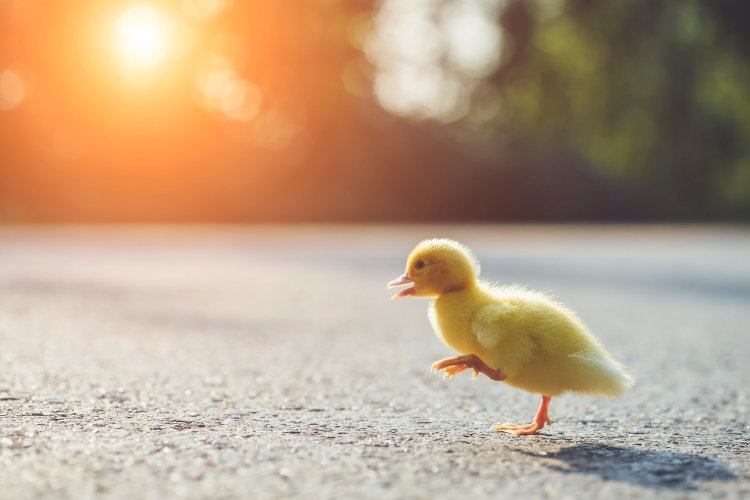Patience Practice is the Best Toddler Hack You’ve Never Heard Of
As the parent of a toddler, do you crave alone time?
Do you daydream about having privacy in the bathroom?
Do you long for a day when you can ask your child to sit and play while you go do something, and they will actually do it??
If this resonates, and if your little one is 15 months or older, it might be time to begin “Patience Practice"!
What is Patience Practice?
Patience Practice (or Patience Building) is a method that helps children learn that they are safe and they are capable... even when you walk away for a moment.
I learned about Patience Practice from the wonderful Moorea Malatt, a Seattle-based parenting coach with a specialty in sleep and child development. She is a wealth of knowledge and this is one of my very favorite tricks she teaches.
Instead of feeling compelled to interrupt their own games every time you leave the room, children learn that they can actually enjoy staying put and staying busy with whatever wonderful activity is engaging them at present. While they do this, you are free to move about the house, coming and going through the room they are in as you please.
Doesn't it sound lovely? To have luxurious stretches of time where you simply coexist with your child? You can both enjoy each others' company, but with a new level of freedom!
How can Patience Practice help?
It is natural for our kids to want to be around us all the time.
When babies are young, this constant togetherness is a true biological need. As they get older though, staying with us 24/7 becomes less a need, and more of a habit.
Your child may be developmentally ready for more independence, but at this age, they can't do it on their own - they need your help to make it happen.
For their entire life they have either cried when you left a room, or gotten up and followed you (or both!). These are deeply-rooted habits, and our little ones don’t know any other way. You leave the room and their automatic response is to want to go too.
To help little ones learn a new way, we want to approach this as we would any other change in habit.
Research on changing habits shows us that if we want to end an old habit, our best bet is to replace it with a new habit! Patience Practice helps us do that.
We help our children learn to replace the automatic old habit with a purposeful new habit: staying in the room and playing.
Another unexpected benefit of Patience Practice is that it can actually help little ones become more independent sleepers! This exercise is often part of my sleep consulting recommendations for clients with toddlers.
Here is a checklist to help you decide if your child seems ready for Patience Practice:
They are at least 15 months old (18 months is more typical)
You can tell that they understand what you communicate to them, most of the time.
They have ways of communicating their needs to you (on purpose)
They don't seem to be in a period of increased separation anxiety
Their bedroom doesn’t feel scary to them
If you ask them to do a simple, one-step task, they can do it.
My little one fits that criteria! How can I get started?
If your child meets these signs of readiness and you want to get started with Patience Practice, I’d love to support you!
Let’s meet for a 1-hour session so I can learn about you and your little one. I’ll give you a tailored set of steps you can use to start helping your child become comfortable spending some time alone.
My little one isn’t quite ready yet. Where do I go from here?
If they don’t meet these signs of readiness, that’s ok! Be on the lookout - most likely this phase is right around the corner.
But just because your little one isn't ready for Patience Practice yet doesn't mean YOU aren't ready for more alone time. Having time to focus on ourselves and our own needs is vital.
It might be time to lean on your community and ask for more help:
If you have a co-parent and you are doing the lion's share of the work, sit down and reevaluate the situation together to make sure your needs are being met equitably.
If you have loved ones who are available, it could be a great time to ask for some extra childcare support.
If you have the means to hire a sitter, a housekeeper, or a part-time nanny, now might be the time.
Maybe you’re reading all of this and thinking “This is perfect. Everything I’m reading here really resonates. I knew I needed this and I’m so excited to learn that there is a roadmap that can get me there.”
Or maybe all of this is sounding really new and different to you, and there are some alarm bells going off in your head. I hear this from so many of my clients: “We’ve always been SO together. And I do want some space to breath, but should I be worried that this change will hurt our relationship?”
It can feel scary or even selfish to begin to prioritize yourself – to ask your tiny, precious human to change their behavior so that you can have more space.
If these concerns sound familiar, I want to offer you some reassurance:
It's healthy to have needs.
It’s healthy to take care of yourself.
Building a healthy, secure attachment does not mean having to be together all the time.
It doesn’t mean you always giving your child everything they ask for and forever shielding them from situations that might make them uncomfortable or where they must try something new.
It doesn’t mean never risking them feeling sad, or angry, or disappointed.
It doesn’t mean that you’ll never play with your child again.
It doesn’t mean not thinking about yourself because you’re so busy thinking about your child.
In fact, many experts in child development and gentle, respectful parenting believe that setting and holding strong boundaries with your children is actually a central piece of what helps to build secure attachment!
This technique is all about setting your children up for success.
It’s about helping them to learn that it’s safe when people take a little alone time, and that the grownups who love them will still be there even if there are times you can’t see or hear them. It’s about knowing that after some time apart, there is a return to the togetherness that they know so well. It’s about resilience, trust, support, and so many lovely things.
And doing this work sets you up for success too.
You need this. Can you feel it in your bones? You’ve sacrificed so much for so long as a parent, and you’ve been waiting to reach some glimmer of light at the end of the tunnel.
This may be your glimmer!
This might be just the thing that you’ve been waiting for – a tool that can help you begin to shift so much about your relationship with yourself, with your daily life, with your toddler – all for the better.







